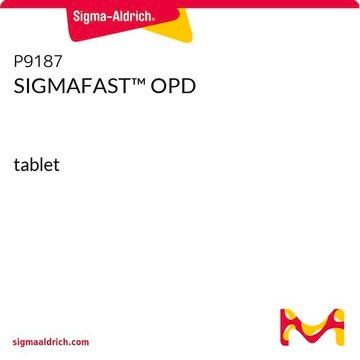추천 제품
생물학적 소스
pigeon breast
Quality Level
양식
ammonium sulfate suspension
특이 활성도
≥50 units/mg protein
농도
≥0.4 mg/mL
기술
cell based assay: suitable
단백질 ID 수납 번호
UniProt 수납 번호
저장 온도
2-8°C
유전자 정보
pigeon ... CRAT(102084317)
유사한 제품을 찾으십니까? 방문 제품 비교 안내
일반 설명
Research area: Cell Signaling
애플리케이션
Carnitine Acetyltransferase from pigeon breast muscle has been used in enzymatic assays.
생화학적/생리학적 작용
Carnitine acetyltransferase maintains the cellular and mitochondrial levels of acetyl-CoA, a key cofactor required for oxidative metabolism, by catalyzing an equilibrium between acetyl-CoA and acetyl-L-carnitine, a storage form of activated acetate. Carnitine acetyltransferase also maintains the pool of acetyl-CoA required for neuronal and nonneuronal acetylcholine production.
Carnitine acyltransferases (CrAT) are enzymes that contribute to the reversible conversion of acetyl-CoA and carnitine into acetylcarnitine and free CoA. This enzymatic process plays a vital role in the energy metabolism of eukaryotes by promoting the β-oxidation of fatty acids. CrAT-mediated acetyl carnitine production and efflux help maintain a balance between acetyl-CoA and acetyl carnitine in the mitochondria, regenerate free CoA, and alleviate the product inhibition of pyruvate dehydrogenase (PDH), which is a key enzyme in glucose oxidation. This process promotes glucose homeostasis and helps maintain optimal cellular energy metabolism. Carnitine acetyltransferase activity also aids in the progression of the cell cycle from G1 to S phase. carnitine acetyltransferase deficiency also leads to the development of various neurological disorders including Alzheimer′s disease, ataxic encephalopathy, and several vascular diseases.
단위 정의
One unit will convert 1.0 μmole of acetyl-L-carnitine and CoA to L-carnitine and acetyl-CoA per min at pH 8.0 at 25 °C.
물리적 형태
Crystalline suspension in 3.2 M (NH4)2SO4 solution, 50 mM potassium phosphate, 1 mM dithiothreitol, pH 7.0
분석 메모
Protein determined by biuret.
Storage Class Code
12 - Non Combustible Liquids
WGK
WGK 2
Flash Point (°F)
Not applicable
Flash Point (°C)
Not applicable
가장 최신 버전 중 하나를 선택하세요:
시험 성적서(COA)
Lot/Batch Number
이미 열람한 고객
Redesign of carnitine acetyltransferase specificity by protein engineering
Cordente AG, et al.
The Journal of Biological Chemistry, 279(32), 33899-33908 (2004)
Marilou Ramos-Pamplona et al.
Molecular microbiology, 61(1), 61-75 (2006-07-11)
In lower eukaryotes, beta-oxidation of fatty acids is restricted primarily to the peroxisomes and the resultant acetyl-CoA molecules (and the chain-shortened fatty acids) are transported via the cytosol into the mitochondria for further breakdown and usage. Using a loss-of-function mutation
Huaijin Zhou et al.
Microbiology (Reading, England), 154(Pt 2), 500-509 (2008-01-30)
Carbon starvation is a significant stress encountered by the opportunistic fungal pathogen Candida albicans, and mutations in several pathways required to assimilate non-fermentable carbon sources attenuate virulence. These pathways -- beta-oxidation, the glyoxylate cycle and gluconeogenesis -- are compartmentalized in
Ida J van der Klei et al.
Biochimica et biophysica acta, 1763(12), 1794-1800 (2006-09-29)
Most peroxisomal matrix proteins contain a peroxisomal targeting signal 1 (PTS1) for sorting to the correct organelle. This signal is located at the extreme C-terminus and generally consists of only three amino acids. The PTS1 is recognized by the receptor
Structure-based virtual screening to identify novel carnitine acetyltransferase activators
Ombrato R, et al.
Journal of Molecular Graphics & Modelling (2020)
문서
Instructions for working with enzymes supplied as ammonium sulfate suspensions
자사의 과학자팀은 생명 과학, 재료 과학, 화학 합성, 크로마토그래피, 분석 및 기타 많은 영역을 포함한 모든 과학 분야에 경험이 있습니다..
고객지원팀으로 연락바랍니다.













